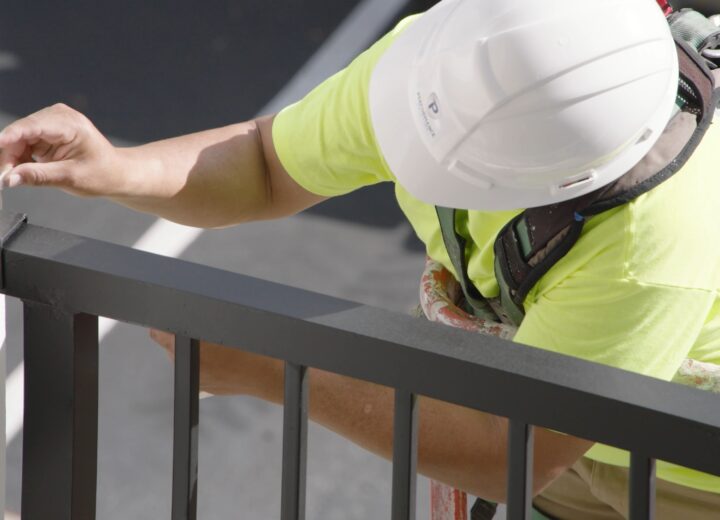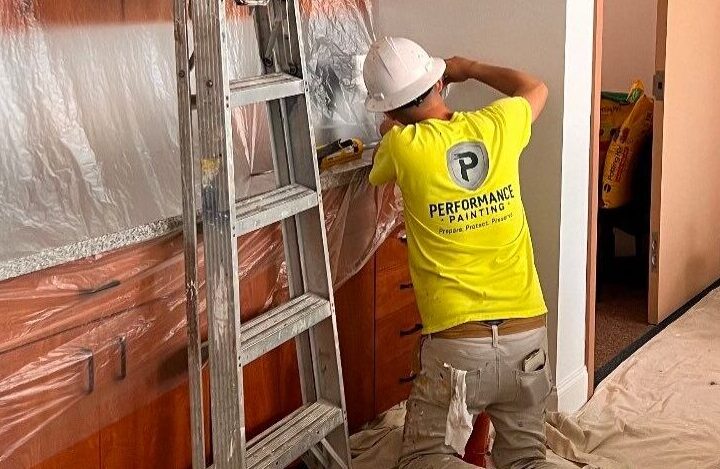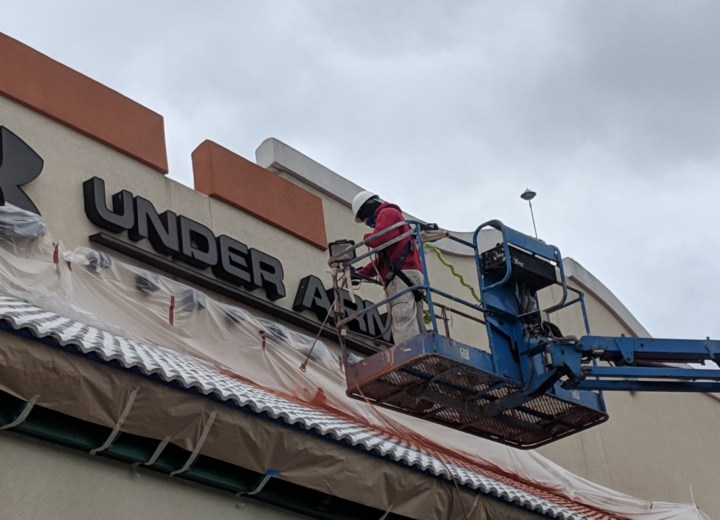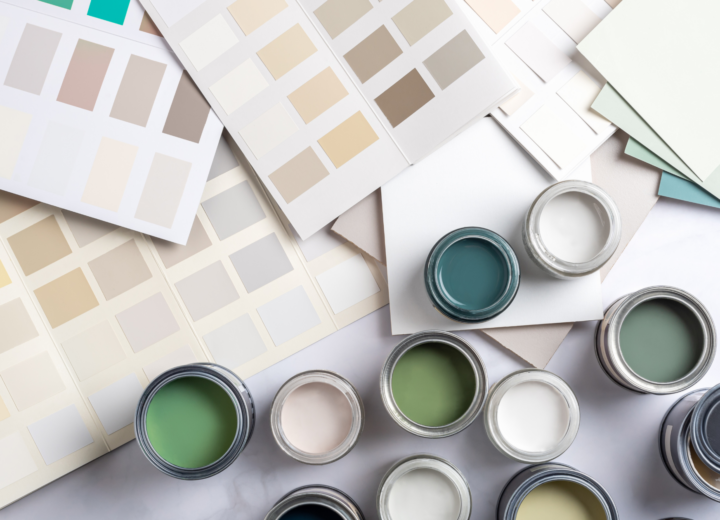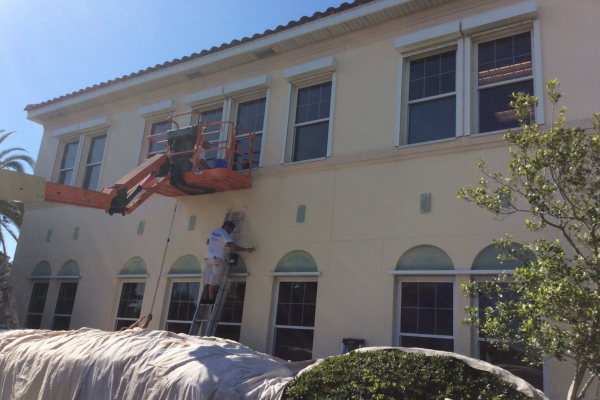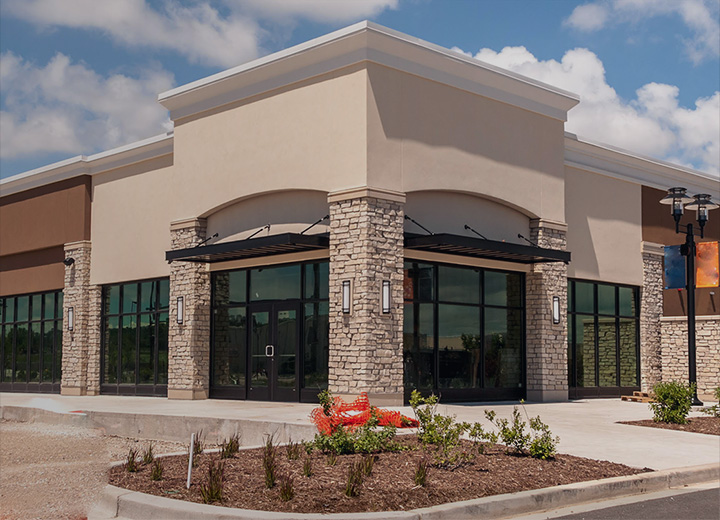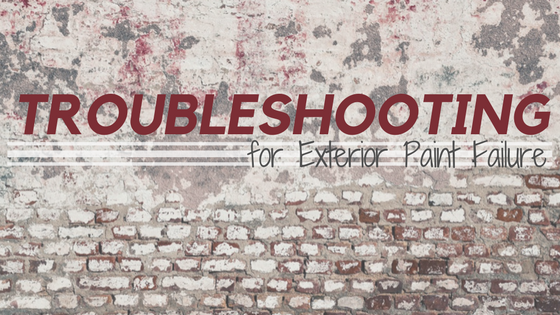
Exterior paint problems are bound to happen sooner or later. But in some cases, premature and unexpected paint failure end up costing building owners thousands of dollars.
To help commercial and industrial facilities prevent extensive damage, expensive repairs and prolonged operational downtime, our experienced industrial painters have put together a basic guide to troubleshooting the most common exterior paint problems. Here are a few measures that can reduce the likelihood of specific paint failures.
Proper Surface Inspection and Preparation
Inspecting and preparing surfaces correctly are two important factors in ensuring the durability of the coatings applied. During the inspection, industrial painting contractors assess the overall condition of existing paint films and substrates. Based on the problems identified, they’re able to determine the best surface preparation methods and painting techniques for different areas, components and pieces of equipment, and recommend the most suitable coating systems, adhesives and sealants for each application.
A few exterior paint problems that are commonly found in industrial environments include:
- Mold growth and pest infestations – Condensation, moisture and water accumulation in wall assemblies are the primary culprits responsible for extensive water damage. Left unrepaired, water damage will continue to worsen, causing problems like unsightly stains, cold spots, blistering paint, mildew, mold, dry rot and pest infestations.
- Adhesion problems due to improper surface preparation – Most adhesion problems occur as a result of condensation, water and/or contaminants, like dirt, dust, salts, grease, oil, chemicals and mold, present on the surface being painted.
To properly prepare surfaces for painting, our industrial painters use a variety of prep techniques, including pressure washing, abrasive blasting and water blasting. Selecting high-quality coating systems and complying with product-specific data sheets can also prevent paint failure due to lack of adhesion.
- Fading paint, efflorescence and cracking – As the first sign of deterioration, fading paint can be easily fixed with a new coat of paint. Efflorescence and hairline cracking, on the other hand, can lead to more serious, persistent problems, which range from water damage, mold growth and dry rot to complete coating failure.
- Paint damage due to exposure to specific hazardous substances – In order to specify the most suitable surface preparation and painting techniques along with coating products that can withstand particular environmental conditions, industrial painting contractors should take into account the intended use of each area and piece of equipment.
Considering less obvious causes of paint failure—such as poor building design, potential incompatibilities between the materials specified, and the thermal expansion and contraction of different materials—is another thing professional painters can do to prevent exterior paint problems.
Coating Selection
An experienced painting contractor won’t only ensure compliance with the applicable health, safety and environmental regulations; he can also help you select the right coating systems for different surfaces in need of painting by taking into account the corrosivity of the environment along with the requisite performance characteristics and painting techniques.
Ambient Conditions
Painting under the right environmental conditions is another critical step toward preventing the most common exterior paint problems. Factors like relative humidity, rain, air temperature and wind velocity as well as the temperature of the surface being painted can greatly affect the quality and durability of a paint job.
Offering industrial and commercial painting services throughout north-east-central Florida since 2001, our professional painters specialize in inspecting, preparing, painting and restoring a wide variety of surfaces. Thus, if you’re looking for an experienced painting crew able to bring your small- or large-scale painting project to fruition, please call (904)-641-4800 or (813)-308-0388 to talk to our friendly professionals.

